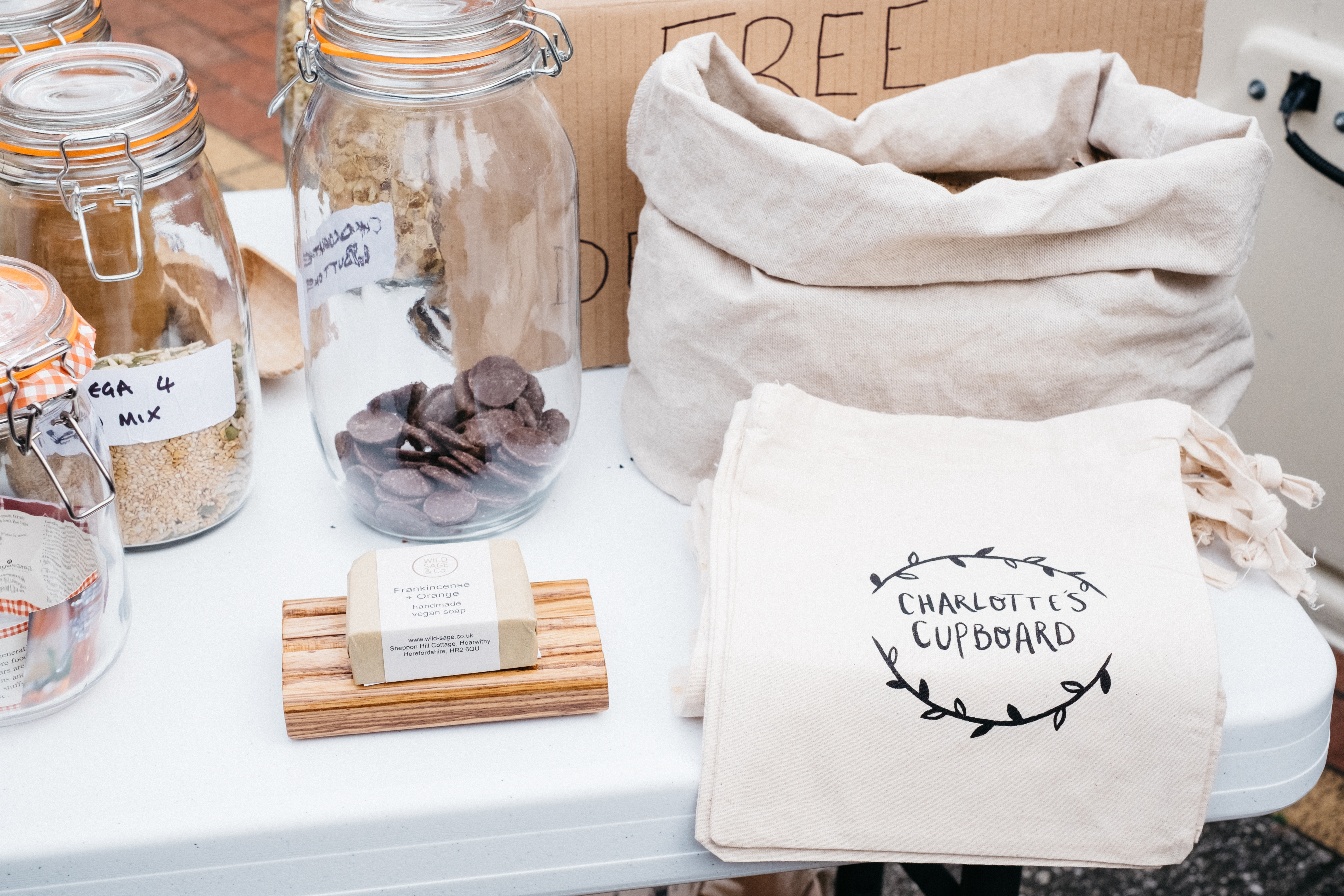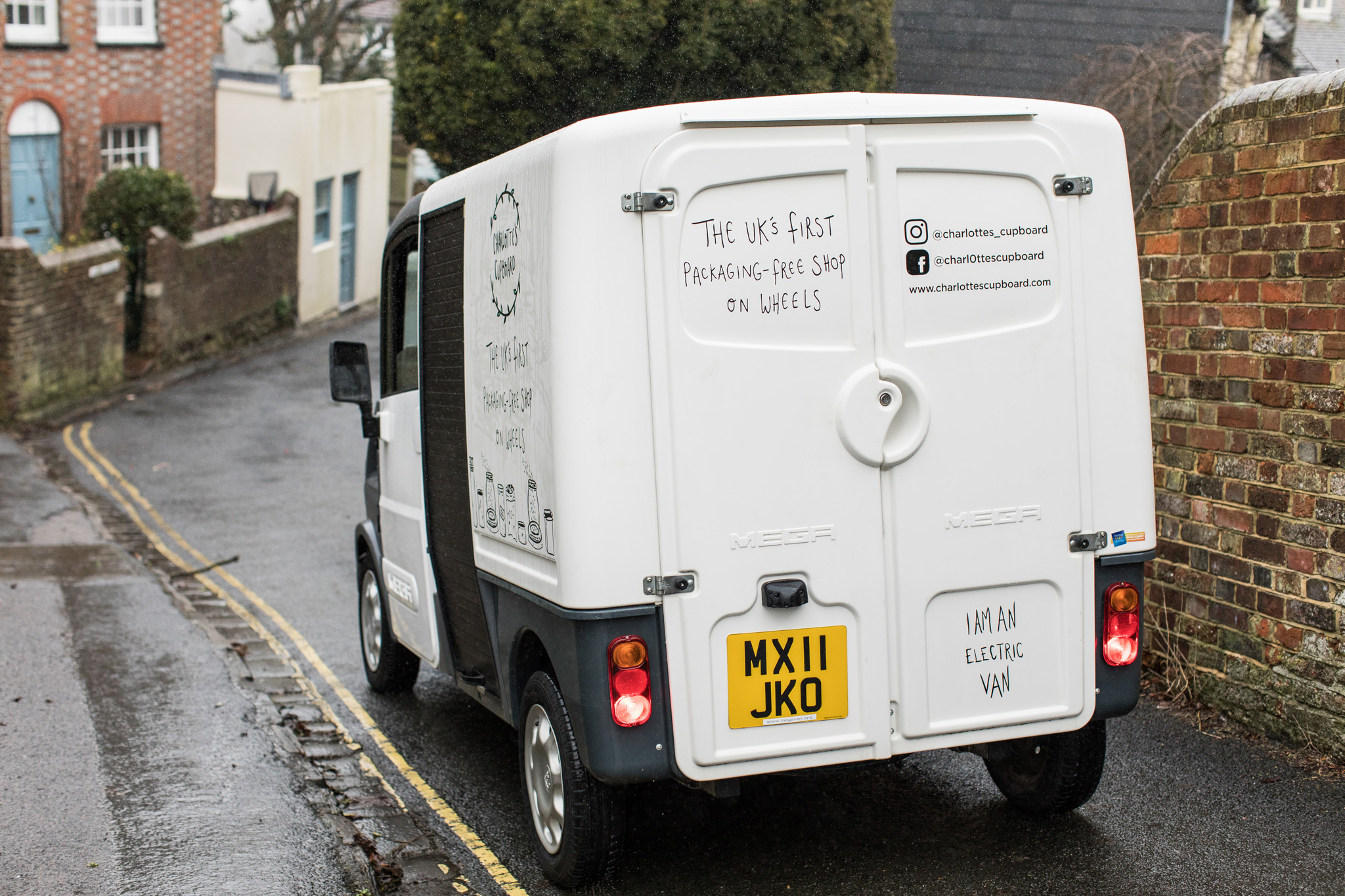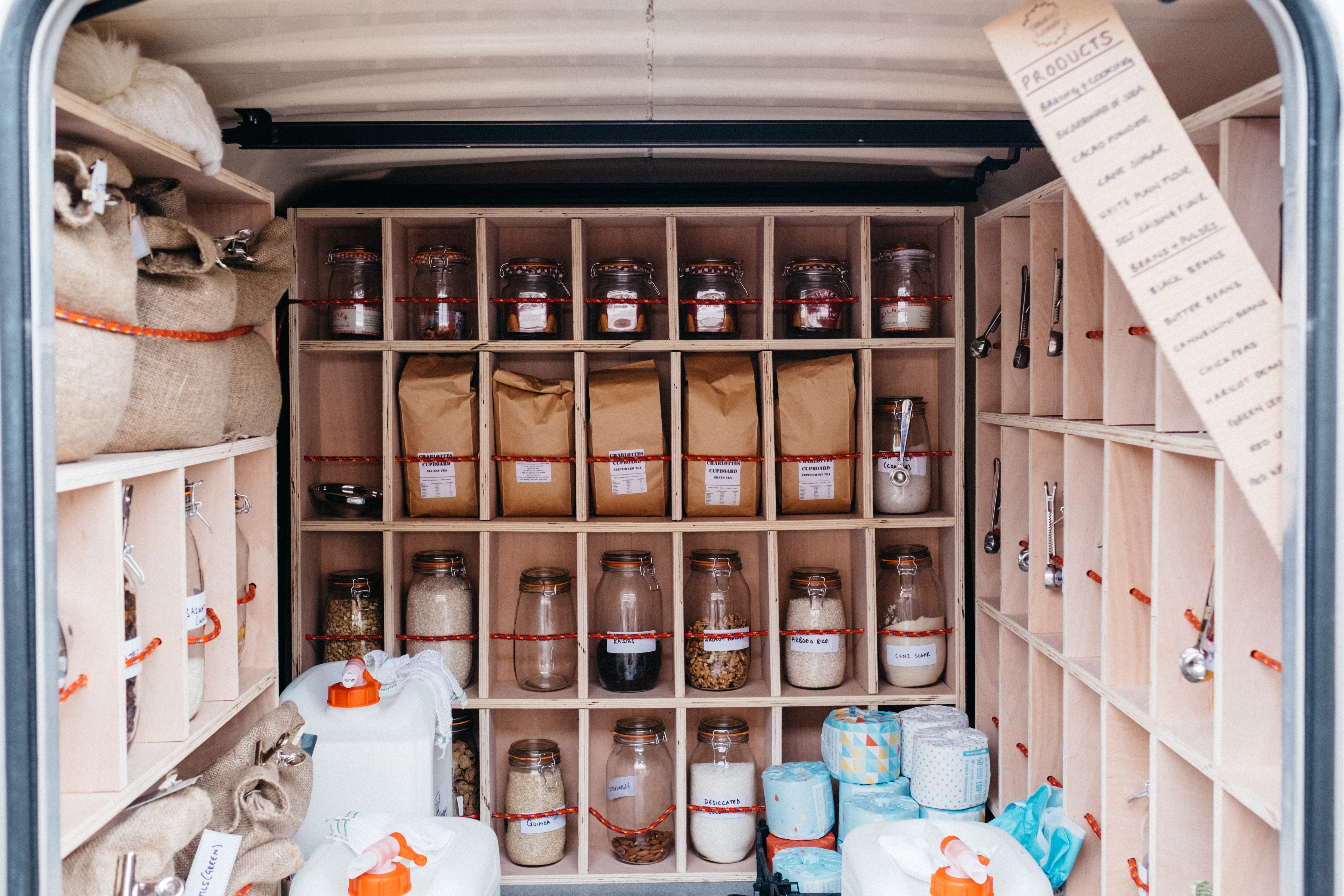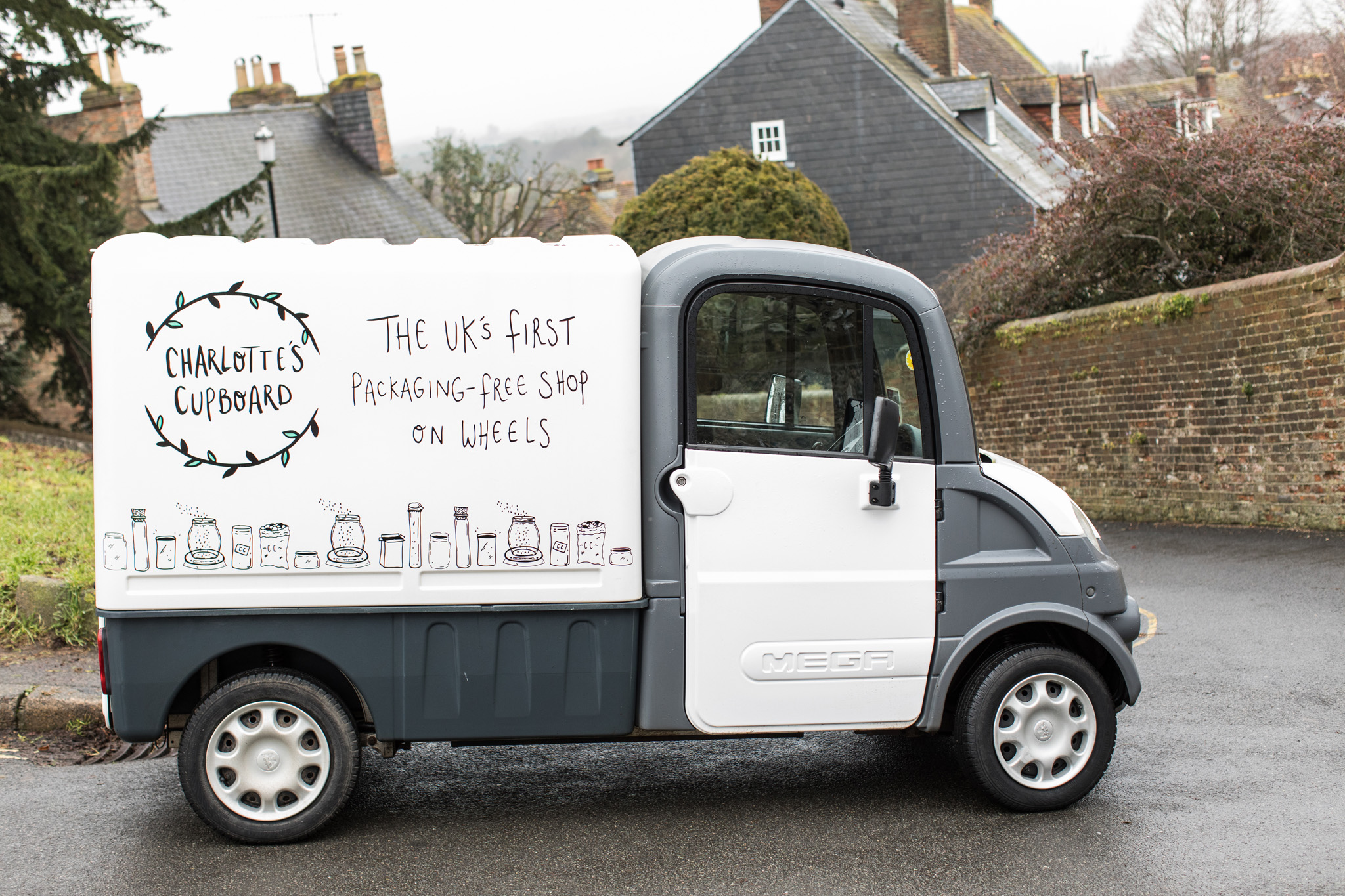Okay so in recent months we can all agree we have seen our fair share of press coverage on the epidemic facing our oceans and their beautiful creatures due to the rise in plastic pollution. But something we aren’t maybe all as aware of is just how bad the plastic problem (broad terms) is here in the UK specifically.
When I started 365 Magazine I knew I wanted to bring you the most engaging businesses and entrepreneurs that we are surrounded by in The South East. So naturally, Charlotte’s cupboard had to feature. Charlotte and Thalassa are changing the world one delivery at a time. And their story resonated with me so much, even though admittedly my knowledge on this subject was not as good as I wanted it to be.
So hopefully you will find this article as interesting as I did the interview, and if we can all reduce our plastic consumption and support businesses like this we can definitely make an impact.
When did the idea for Charlottes cupboard start?
The idea for our shop came about in March 2017.
Had you always wanted to work for yourself?
Yes and No. I have always been in Marketing and I moved back from London to Sussex 3 years ago. I enjoy marketing but I was doing a job that I had absolutely no passion for and felt unfulfilled so I quit my job in 2016. I took a little break and then Charlotte’s cupboard was born!
Tell us about your decision to live a Vegan lifestyle.
3 years ago we both became Vegans, and when you have quite a dramatic lifestyle change you then start to research other things that go with it. So naturally, that led to a minimal waste lifestyle. At that time Thalassa was living in Spain and I was in the UK and we were both actually living that kind of lifestyle not knowing each other were doing so! I then started shopping in Brighton with all my bags and jars where I could buy packaging-free products and in a more ethically conscience way but realised it wasn’t really convenient. So hence came the brainwave, which was to make this way of shopping as convenient as possible for people which is why we are mobile. You can shop with us at static places but we do home deliveries for people with busy lives. So it is about making the way we live accessible to others along with trying to educate people on the impact that our everyday lifestyle can have on the planet.

So would you say that since starting you have been able to use the business as a platform to educate people as well?
100%. We hoped that by talking to people face to face every day we would be able to educate others. For example, we do quite a lot of school visits. 15 to date and more planned and that is something we never envisaged happening. Unfortunately the generation of kids at school now are going to inherit all the consequences of our bad habits- but they are also the generation that is most engaged. We visit the school and park up in the playground in Peggy (our electric delivery van) and form discussion groups around her. A lot of kids end up teaching us stuff and telling us what they know about problems and what they are doing themselves to address it. We have also been invited into businesses and different events to talk so that side of things was a surprise but has been great.
So far what has been your most memorable moment?
A few things – such as being put forward for a few awards this year by members of the public which has been quite touching. Also that I can now drive round Burgess Hill and Haywards Heath and have kids recognising Peggy from a school visit and wave to us which is lovely.
A big surprise is we have always tried to change how the supply chain works and even though it has been incredibly hard we have already seen changes in the way things are supplied to us. That has been quite impressive as some have been quite big companies.

Do you think it is becoming easier or more difficult to expand your product range using plastic free suppliers?
It’s always going to be a challenge until legislation is in place. One example is a sack of rice. We order in a 25 kilo paper sack of rice but as they didn’t have that in one time they sent the order in 5 kilo plastic bags, so they have fulfilled the order but actually we would have preferred to wait until the correct packaging was available but until legislation is made around how plastic affects our planet, it is going to be hard for bigger companies to change. Being a small company we are lucky to be able to make small changes ourselves but I think for a few years yet it will remain a challenge.
What would you say are your key challenges?
One challenge is conveying everything that we sell because people assume we are just a van that sells beans or nuts whereas we actually sell over 150 products and I can guarantee that most people use 80% of those products in their everyday lives. It is also hard as people assume we are a health or speciality food shop. The biggest challenge is people’s perception that we are just two girls selling out the back of our van whereas we are so much more than that because of every thought, every decision, every process that goes behind everything that we do. For example, we are the only zero waste shop to decide not to sell pasta as there are no bulk providers prepared to sell it to you in more than 5 kilo plastic bags and you can buy that at any supermarket. If we have to buy something in plastic like the 20 kg sack of cashew nuts we have to save more plastic selling it on not in plastic. Every customer can feel we are doing the best we can for the right reasons. It’s not just about making money, it really is about changing the way we live and make decisions as a society. Trying to get that across and show people that you are really serious is hard.
Do you think that people realise how bad the landfill and foot wastage situation is in the UK? The plastic pollution problem in the Oceans seems to get so much coverage, but the UK landfill problem not so much?
I guess sadly, the Oceans have been used a lot as it easy to tug at heartstrings with animals and it is very visual. I was shocked to discover that there are 20,000 landfills in the UK alone and we are a tiny set of Islands. I think we have only 4 left and because they are not visual it is very hard to get how serious that is across to people. When we run out of landfill sites we are going to incinerate it instead. The problem is when you rely on incineration, you then have to produce more waste to keep the incinerators going, a downhill spiral really. I think landfill and food waste is just as important as our Oceans.
Do you think the way customers can purchase your products contributes towards reducing food waste and making more considered purchases?
Yes. We have actually set it up to directly combat food waste. One example is herbs and spices. Most people have ten or more jars of these at the back of their cupboard they don’t use and so we sell them by the scoop which means you can experiment with spices. So if you only need Garam Masala for one recipe you can buy one scoop. A lot of our customers just come to us for say 200g of dates for a recipe so they don’t waste them. This, in turn, saves you money. Win Win!
Can you tell us what you feel is the most difficult thing about running a small business?
Yes – only having two of you to do absolutely everything from menial tasks like cleaning the van and stock room every day, doing the finances, dealing with suppliers and then on top of me packing and delivering the orders I need to market the business so our customers get to know about us and shop with us. So the fact that there are two of us doing the jobs of about 20 people is the hardest challenge. That is closely followed by people not understanding why you should support small businesses that then support the local economy. Mainstream supermarkets have ‘ruined’ things for a lot of people and we don’t realise that, like expectations of the cost of things.
Can you tell us more about your infamous singing videos?
It was spontaneous at first! But it has since grown into the most crucial part of our marketing strategy. The story behind them is we became friends with a girl that has the same van as us in Lewes but her’s is converted into a coffee van. She then became a customer of ours and one freezing January day we were singing to ourselves Kelis’s Milkshake song, and then we made a little rap about our van. Then we did one about hers and sent it to her and she put it on social media. She gets her coffee from Pharmacy Roasters in Brighton and they saw it and asked us to do one for them which they shared, and it then became quite a big thing. So it has become quite a thing and we now get song requests, schools we have visited have written their own songs for us which has been a lovely surprise! It has just become a more light-hearted way of getting what we are about across to people and to engage customers. Channel 4 even put a camera in Peggy and filmed us singing while we were driving along!
Thinking a year ahead what are your plans?
We have a lot of plans. So the way we started Charlottes Cupboard has been as a shop on wheels but really that is one line of our vision. We see it more as an umbrella company to help people care about the planet and when I say planet I mean that is the people and the animals as an encompassing word. Helping people understand where our clothes come from and the cost of those, so everything we do going forward has to be clearly thought through to have the same morals and ethos behind it.
To find out where you can visit Peggy, Charlotte and Thalassa or to book in a delivery simply visit the website at https://www.charlottescupboard.com/



Comments
No comment